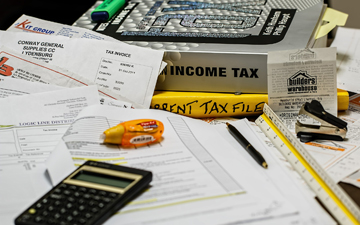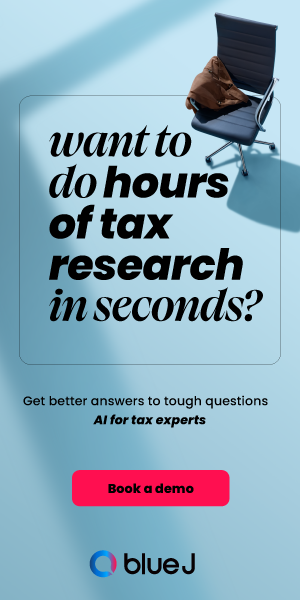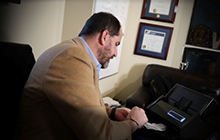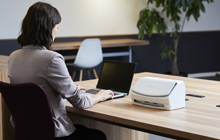COVID-19 pandemic promotes paperless public practices

Part two in a series on how the coronavirus crisis is accelerating change at accounting firms
OTTAWA, May 18, 2020 – The COVID-19 pandemic is accelerating long-term change at small to medium-size accounting firms and the offices of sole practitioners across Canada. Virtual meetings and remote connection, which did not even exist in primitive format until the tail end of the 20th century, has become an advantage to many accountants during the current crisis. In previous generations, social distancing requirements would have effectively shuttered a public practice indefinitely.
The pandemic has sped up the trend towards the paperless accounting practices in both corporate finance and public practice. Paper tax returns, which were still predominant not too many years ago, are now decisively on the wane, as are the number of clients without access to technology — albeit with some gaps in rural Canada.
 |
"You’re always going to have more success communicating in person," says Steven Flynn of Andersen Tax LLP. |
Steven Flynn, a partner with Andersen Tax LLP in Vancouver, says fewer than five per cent of his clients do not have a digital scanner or other online capabilities with which to connect with the firm. Andersen Tax switched to paperless files in 2008; paper documentation delivered to the firm is less than 25 per cent of volume.
But even in the reduced instances where paper documents are required, and a personal trip to the office would have normally been in order, practitioners were able to utilize other options to get what they needed. At the office of Jason Kingston, a principal with DSK LLP in Kitchener, Ont., paper documents can be deposited physically, scanned online or sent by regular mail.
“We use an online portal system, and we’ve been asking clients to do as much as possible through that. For those who still want to just drop off their physical documents, each office has a secure drop off — a box outside the building, and a mail slot that comes into the office,” he explains.
Making the extra effort
A few of Andersen Tax’s clients — primarily senior citizens — do not own computers and are therefore unable to scan documents. The firm has arranged to pick up tax documents from their homes via courier, while trying their best to maintain all of the protocols required of social distancing. “Those clients appreciate that because they’re a bit anxious to try and come downtown,” says Flynn.
Efforts are made to protect both clients and staff to the greatest degree possible and to make them feel comfortable and safe during this pandemic while the staff fulfills its professional obligations. Flynn tells a funny anecdote arising from his mother making homemade masks for their family and friends.
“I went to one of my senior clients to pick up documents and had this mask on — probably more for his protection from me than anything else — and he laughed because the mask was flowered and coloured,” he explains.
Alternative means for paper-based clients
Some accounting and bookkeeping practitioners, such as Andrew Wall of CPA4IT or Jennie Moore of Moore Details Inc., had already embraced the “no bricks, no mortar” mantra of the paperless, cloud-based accounting practice. Moore, for instance, will persuade her clients to go paperless by purchasing a digital scanner for their business.
But some older clients do not have online access, notes Catherine Barrie, CPA, CGA, a sole practitioner in Barrie, Ont. If clients need to get paper-based slips to her firm, “we have a physical drop-box set up and are sending our e-courier link to clients so they send us documents more securely.” Most of their returns, however, have already been completed early in the season in anticipation of refunds. The vast majority of the rest of clients coming later in the tax season do have online access.
Flynn says it is more challenging dealing with clients of the firm’s Vancouver and Calgary offices with those offices locked. “I think you’re always going to have more success communicating in person. When clients want to drop something off and also have something they want to talk about, that’s when you get to sit down and spend an hour with them,” says Flynn. “Then we can ask questions that uncover other things, or recognize some risks and opportunities.”
But that is harder to do with just an exchange of tax slips. “So we have to make sure we call and interact with them,” Flynn stresses, noting the importance of reaching out to assure clients the firm remains committed to answering all of its questions and delivering the best value.
Jeff Buckstein, CPA, CGA is an Ottawa-based freelance business journalist. Image by Steve Buissinne from Pixabay. This article is the second in a series on how COVID-19 is accelerating change in Canadian accounting offices. Read the full series in order:
Part One: COVID-19 is accelerating change at Canadian accounting firms
Part Two: COVID-19 pandemic promotes paperless public practices
Part Three: WFH: COVID-19 is accelerating remote work at accounting firms
Part Four: COVID-19: Accounting firms are finding efficiencies amidst disruption
Part Five: COVID-19: How SME accounting firms will change post-pandemic







(0) Comments